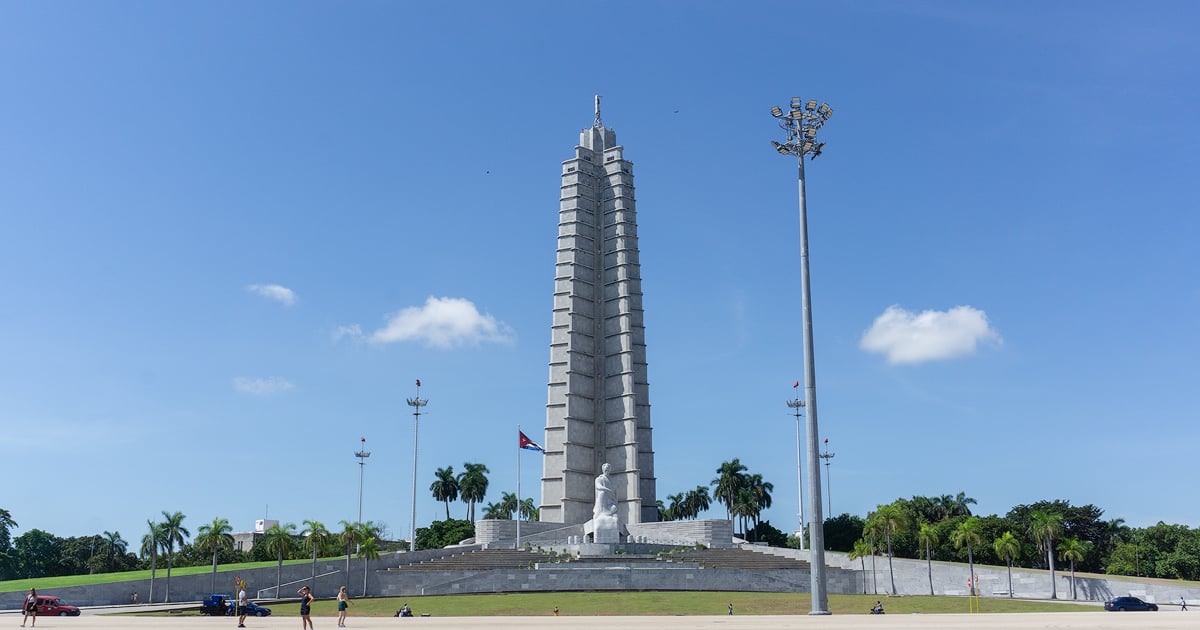
The Havana government has selected the municipality of 10 de Octubre as the provincial venue to commemorate the 66th anniversary of the Triumph of the Revolution and has unveiled a festive activity plan.
This directive from the Communist Party is beginning to spread to all territories, not just Havana. The regime's official enthusiasm contrasts sharply with the outrage of the citizens, who question the purpose of the celebrations amid the serious crisis the country is facing.
Criticism quickly followed. On social media, a user expressed her disbelief upon seeing the announcement from the Government of Havana organizing the festive activities plan.
"Given the terrible situation at the Hijas de Galicia Hospital, I don't believe they deserve the October 10 recognition. It would be good for the authorities to pay a visit there and check the hospital's generators, which fail at the most critical moments."
Another person remarked, "A plan for festive activities when there are so many issues that need to be discussed and resolved in the capital? We still haven't received the full rice shipment from November, nor the gas, among other things."
The report on electrical failures and poor sanitation conditions in the country's hospitals summarizes the widespread issues facing the Cuban healthcare system, exacerbated by the energy crisis.
On social media, Cubans are highlighting the disconnection between the historical leaders of the Revolution and the hardships faced by the people. While citizens deal with blackouts and shortages of food and medicine, high-ranking officials and their families enjoy privileges that further damage the credibility of the socialist model.
The energy situation, characterized by widespread power outages and the collapse of basic services like drinking water and public transportation, amplifies the feeling of hopelessness in Cuba. In this context, the celebrations of the Triumph of the Revolution are perceived as an empty spectacle, disconnected from the reality of the people.
"There is nothing to celebrate in a country mired in misery," many Cubans assert, recalling that, more than victories, what the Revolution has delivered are unfulfilled promises, broken families, extreme poverty, and an uncertain future.
Frequently Asked Questions about the Situation in Cuba and the Celebrations of the Triumph of the Revolution
Why does the Cuban government celebrate the Triumph of the Revolution amid the current crisis?
The Cuban government has decided to continue with the celebrations of the Triumph of the Revolution despite the severe energy, economic, political, and social crisis the country is experiencing. This decision has sparked outrage among citizens who feel there is nothing to celebrate in a context filled with so many difficulties and unfulfilled promises.
What are the main criticisms Cubans have towards the government during the current crisis?
Cubans criticize the government mainly for its disconnection from the hardships of the people, poor management of the energy crisis, lack of transparency, and unequal distribution of resources. The population is tired of prolonged blackouts, shortages of food and medicine, and the perception of elitism among the leaders of the regime.
How has the energy crisis affected the health system in Cuba?
The energy crisis has worsened the already dire conditions of the Cuban healthcare system, with electrical outages and hygiene issues in hospitals. This has put medical care and patient safety at risk, especially in critical facilities like the Hijas de Galicia Hospital.
What measures has the Cuban government taken to address the energy crisis?
The government has implemented measures such as Decree 110, which authorizes planned power outages lasting more than 72 hours, prompting outrage among the population. Furthermore, it has attempted to justify the situation by blaming the U.S. embargo; however, many critics argue that the crisis is a result of poor internal decisions and a lack of investment in energy infrastructure.
Filed under: